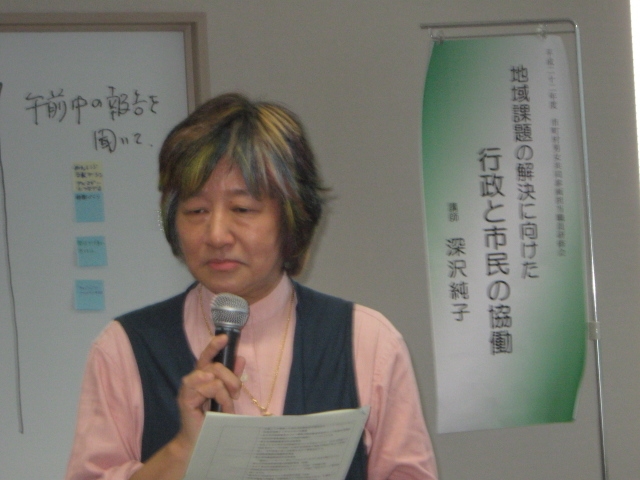Japanese women are tackling gender discrimination
Posted on July 26, 2010.
 Gender expert and representative of Human Service Centre, a non profit organization.
Gender expert and representative of Human Service Centre, a non profit organization.
By Junko Fukazawa
As a women`s rights activist the fight for equal rights for women alongside men in Japan has been a rocky road. But today I must say, we have come a long way towards achieving our goal. Let me explain by telling the readers about progress made on eradicating domestic violence.
This problem has been dormant in Japan for decades. For instance, till the mid- eighties the term, “ domestic violence” was not even known among the public and government officials. Instead, people talked about middle-aged divorce or depression rates among married women. Nobody really linked these issues to violence against wives in the family.
The term domestic violence raised its profile from the nineties. I see this development as a landmark in the women’s rights movement in Japan. There two very important reasons on why we have achieved this. First was, of course, international pressure on Japan. Japanese feminists received a huge boost with the United Nations focusing on this problem and showing how wife beating ruins the lives of women and families all over the world.
This international spotlight helped feminists, the second reason for moving ahead, to highlight the issue in Japan where thousands of women were suffering from physical and verbal abuse by their husbands. The worst part was they had no one to turn to for help as domestic violence was not recognized socially.
The conservative approach, prevalent at that time,was husbands must do their duty as bread winners and if they fulfill this, then it is fine to hit their wives. This thinking had to be changed. How did we do this?.
I think what helped us were international statistics that showed how domestic violence affects the whole family. Affected children suffer mentally leading to poor study habits or react violently themselves towards others. Also families break up when husbands beat their wives. There are deaths and suicides recorded.
We started showing the public how the breakdown of the family has negative consequences for the country. This approach is working. Today the national government and local municipal offices are funding programmes that seek to stop domestic violence such as building shelters for survivors.
My organization is one such recipient. We run the Community Café based in central Tokyo which is a place that offers counseling and a sympathetic ear to women who gather there. Our counselors provide women who have often suffered for years in silence and find that, the first time, their stories are taken seriously rather than being told to stop complaining about their husbands.
Sometimes, we meet with the violent husbands themselves who say they did not realize the damage they were causing to their families. I think the very fact that men accompany their wives—while still very few in numbers—is an indication that Japan`s strict gender divide is weakening. I am deeply encouraged to carry on with my work even though the signs may look still piecemeal in comparison to other countries.
I would like to end with these thoughts. There are now more Japanese women working for both economical reasons and also because they want to. I think their financial power is leading them to depend less on their husbands and this trend illustrates a break away from mainstream gender role playing that was the norm till just a decade ago. Yet another landmark for the feminist movement in Japan is the growing number of single women, most of them with good careers. This shows more women are making their own decisions about their lives and not viewing marriage as the only choice they have as women.
Thank you. Junko.
Editor`s note: Japan passed first Domestic Violence Prevention Law in 2001 and amended it in 2007 to include non-married couples.

